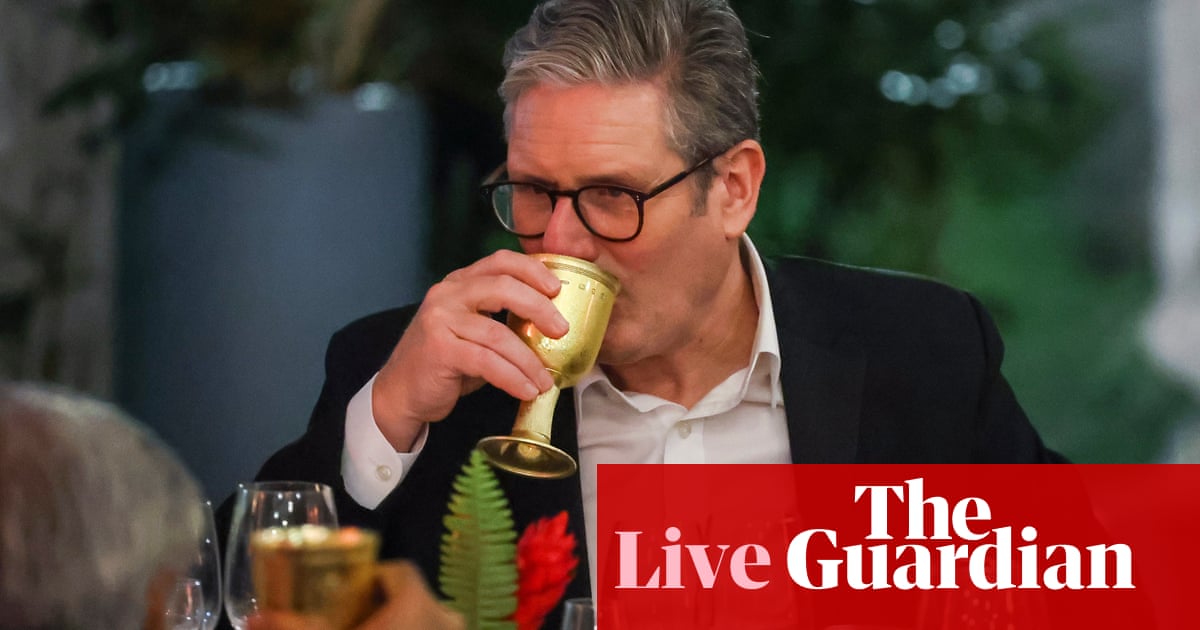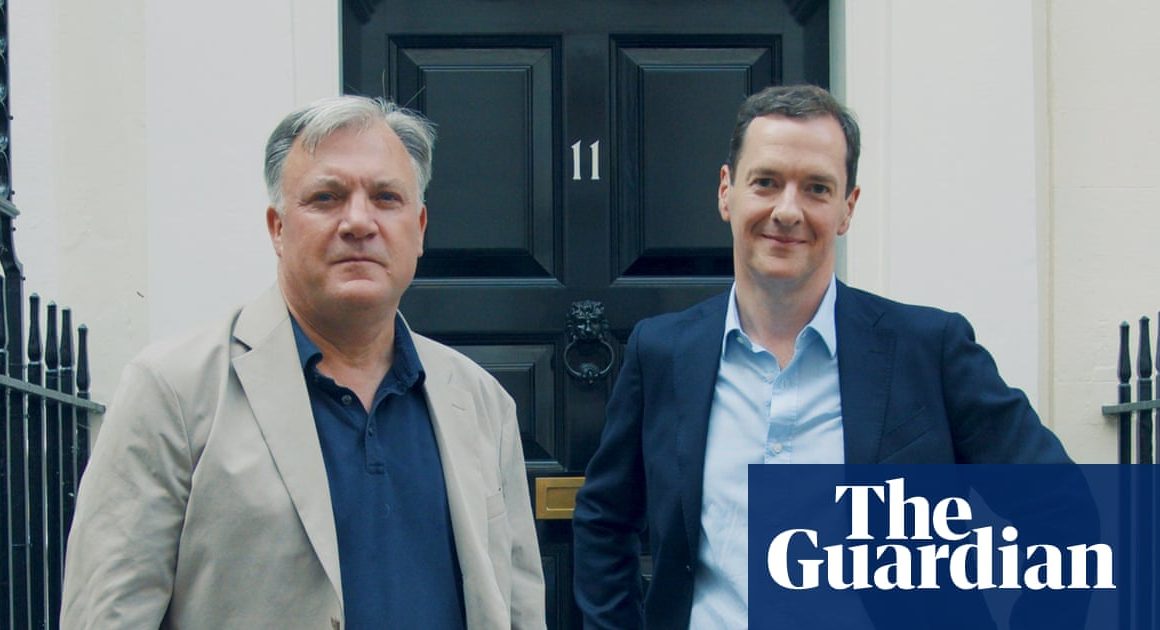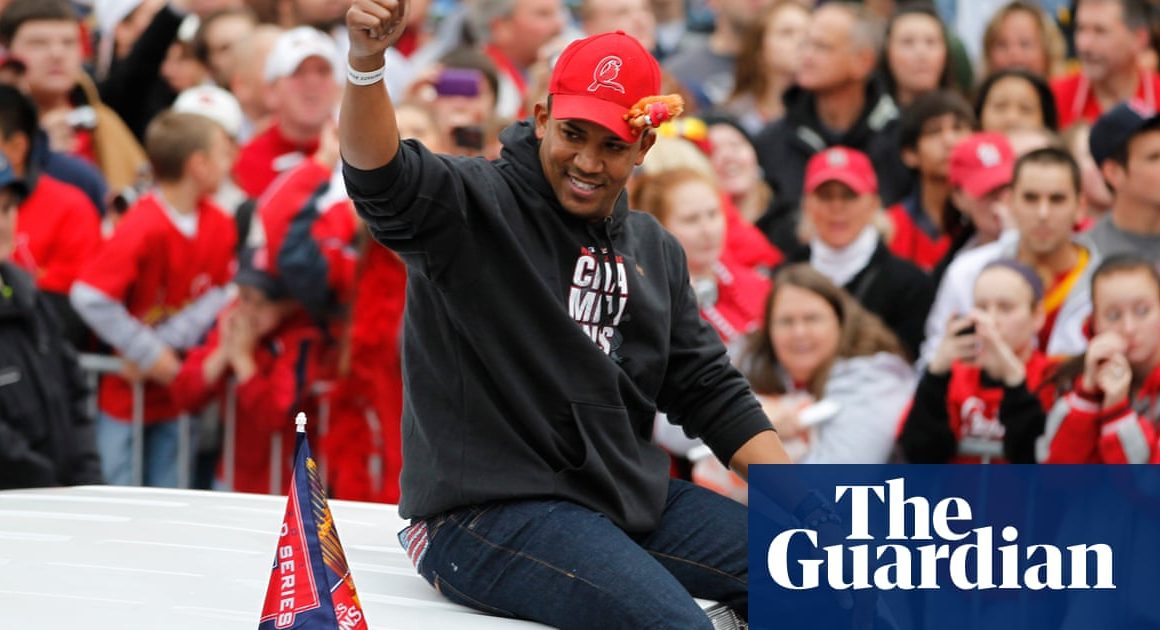Starmer attempts to clarify ‘working people’ tax pledge ahead of budget
Keir Starmer does not think all owners of stocks and shares fall outside his definition of “working people”, Downing Street has signalled, amid confusion over who will be protected from tax rises in next week’s budget.
The prime minister had suggested asset owners would not fall within his conception of what a working person is. The government has been asked repeatedly to define this term, in a bid to establish which taxes may rise in the budget.
Labour’s manifesto said the party would not increase taxes on working people, including VAT, national insurance, and income tax.
During a broadcast interview at a Commonwealth summit in Samoa, Starmer told Sky News that he does not consider people who have an income from assets such as shares of property to be working people. “They wouldn’t come within my definition,” he said.
The hint at who falls outside the scope of Starmer’s definition could point to where tax rises might come from in the budget. Among the levies which are reportedly under consideration for a hike are capital gains tax, inheritance tax, and fuel duty, reports the PA news agency.
In a partial climbdown on Starmer’s position, Downing Street later clarified that people who hold a small amount of savings in stocks and shares still count as working people.
The prime minister’s official spokesperson said Starmer meant someone who primarily gets their income from assets in his interview.
An Friday morning, a Treasury minister said it is “important to focus on” where people are getting their money from in relation to the debate over the “working people” definition.
James Murray told Sky News that “a working person is someone who goes out to work and who gets their income from work”.
Pushed further on whether a working person could also get income from shares or property, Murray added:
We’re talking about where people get their money from, and so working people get their money from going out to work. And it’s that money that we’re talking about in terms of those commitments we made around income tax, around national insurance.
That’s what’s important to focus on, where people are getting their money from, getting their money from going out to work.”
Key events

Kalyeena Makortoff
Rachel Reeves must “get the balance right” when announcing changes to Britain’s debt rules in next week’s budget given the potential knock-on effects to borrowing and mortgage rates, the boss of NatWest has warned.
The bank’s chief executive, Paul Thwaite, said markets would be sensitive to the chancellor’s reasons for releasing up to £50bn of borrowing headroom after she confirmed in Washington on Thursday that she planned to rewrite her fiscal rules.
Thwaite said it was not a surprise that the new Labour government was looking to change the way public debt was measured in order to boost its spending power, noting that the UK had “many different fiscal frameworks in recent years”.
However, he added that the way in which financial markets react to those changes, and the subsequent knock-on effects to borrowing and mortgage rates, will depend on what the government plans to spend that money on.
“The market will take into account, really, what’s trying to be achieved by any change,” Thwaite said after the bank reported its third-quarter results on Friday. “So [they will focus on] what does that mean for spending, what does it mean for investments, what does it mean for tax, rather than the specific rules per se.”
The warning comes two years after the disastrous mini-budget of the then prime minister, Liz Truss, in which announcements over unfunded tax cuts for the wealthy triggered a market meltdown and a surge in borrowing costs that hit homeowners across the country.
Eleni Courea
Businesses that import critical minerals to the UK will be given access to state-backed loans in a move to counter China’s dominance in the market.
The chancellor, Rachel Reeves, is expected to announce extra government support to encourage the import of critical minerals such as lithium, graphite and cobalt in her budget next week. Companies that bring supplies of critical minerals into the UK will be able to access state-backed loans under the UK export finance mechanism.
Critical minerals are key raw materials for technologies used in the supply of renewable energy and production of electric car batteries. They are also used in the defence and aerospace industries.
The move is intended to make it easier for UK businesses to import critical minerals from Commonwealth countries such as Australia, which has huge deposits of lithium and other raw materials.
Demand for critical minerals is expected to far exceed supply over the next decade. Countries are increasingly reliant on imports from China, which has bought up critical mineral reserves around the world. China controlled 72% of the world’s supply of lithium and 68% of cobalt in 2022, according to figures from the Chatham House thinktank.
The announcement was to be made on the margins of the Commonwealth summit in Samoa. Asked whether western countries should be countering China’s influence in Commonwealth countries in the Indo-Pacific, a UK government spokesperson said it was “an incredibly important strategic area”.
They said:
The Pacific is a crucial area for geopolitics, security and economic interests. By 2050 over half of global growth will come from the wider Indo-Pacific and 60% of global shipping trade already transits in this region.”
No 10 blocking outdoor smoking ban amid hospitality opposition

Pippa Crerar
Downing Street is blocking moves to include a ban on smoking outdoors in the upcoming Tobacco and Vapes bill amid fierce opposition by the hospitality trade.
No 10 officials privately believe that banning people from lighting up in pub gardens is “an unserious” policy and is not backed by good evidence showing that it harms non-smokers.
Differences of opinion in government about an outdoor ban, and uncertainty about the potential risks of pressing ahead with it, lie behind the delayed publication of its long-promised landmark bill. It will make the UK the world’s first country to progressively raise the age at which people can buy tobacco until no one can do so legally.
Keir Starmer has insisted that he is ready to face down critics of his drive to eradicate smoking because action is needed to reduce the 80,000 annual death toll from Britain’s biggest killer.
But No 10 was said to be “spooked” by strongly worded warnings that job losses and pub closures will result if smoking in some outdoor settings is outlawed, despite the prime minister’s repeated insistence that “nanny state” jibes will not stop him taking robust action to improve public health.
The Guardian understands that Morgan McSweeney, the prime minister’s chief of staff, is not keen on proceeding with it, despite Starmer’s previous refusal to rule it out.
“It is an unserious policy. Nobody really believes smoking outdoors is a major health problem,” one Downing Street official said.
The trade body UKHospitality said the ban threatens “serious economic harm to hospitality venues” and would hit nightclubs, hotels, cafes and restaurants as well as pubs.
The British Beer and Pub Association said the plan was “deeply concerning and difficult to understand” and “yet another blow to the viability of our nation’s vital community assets”.
Ending smokers’ ability to go outside a pub to have a cigarette, for example in a beer garden, “would have a devastating impact on pubs already struggling” with rising costs, it claimed.
You can read the full piece by Pippa Crerar and Denis Campbell here:

Patrick Greenfield
AstraZeneca has said it may cut jobs at its UK operation if the government enforces a global push to make companies share profits derived from nature’s genetic codes, multiple sources have told the Guardian.
The alleged comments from the company came amid a concerted lobbying push by the pharmaceutical industry against the profit-sharing measures.
Sources told the Guardian that the British-Swedish biotech company – which made $5.96bn (£4.59bn) profit last year – made the comments during a Department for Environment, Food and Rural Affairs roundtable meeting last week to discuss a proposed new global levy on drugs derived from the digital forms of biodiversity. A spokesperson for AstraZeneca denied the comments were made by their representative.
The genetic codes of nature – which, when stored digitally, are known as digital sequence information (DSI) – are playing a growing role in new drug development in the pharmaceutical and biotech industries.
But there is widespread anger among biodiverse countries about how DSI is being used by multinational companies to develop commercial products – almost always for free. Most of the world’s remaining biodiversity is concentrated in poorer countries. They argue that the free use of this genetic information amounts to “biopiracy”, and say companies should share profits when indigenous species are used to develop commercial products.
Global leaders have already agreed in principle that these benefits should be shared more fairly. They are now gathered in Cali, Colombia, at the biodiversity Cop16, in negotiations over what form that sharing should take.
Ideas under consideration include a 1% global tax on profits of goods derived from DSI, which could cost the Cambridge-based company as much as $60m if enforced by the UK government [that figure represents an estimated maximum, as not all of the firm’s profit would be derived from DSI].
Tory leadership hopeful says UK should reject claims of reparations
Conservative leadership candidate Robert Jenrick has said the UK should “unequivocally reject” claims of reparations, reports the PA news agency.
“While the topic of overseas aid and reparations is being discussed, let me confront it head on,” he said in a speech at the Henry Jackson Society.
He added:
We must unequivocally reject these claims, they are based on false and misleading narratives about our past, after all it was Britain that worked harder than nearly any other country to eradicate the slave trade.”
Conservative leadership candidate Robert Jenrick has said the contest is “absolutely not” over after a survey by ConservativeHome suggested he was trailing Kemi Badenoch by 31% to 55%, reports the PA news agency.
Asked whether the contest was all over, Jenrick said:
Absolutely not – this is neck and neck, that’s a survey not a poll.”
He claimed that previous polls had shown the contest to be “neck and neck”, adding:
There’s everything to fight for, and I’m certainly going off around the country as I have throughout the summer.
And I think my message is resonating with members and with the public that we need to learn our lessons, we need to have strong and clear policies now, not the vague promise of one tomorrow, unite the party and take the fight to Labour as quickly as possible.”
Additionally, Jenrick said in a speech at the Henry Jackson Society in London that the UK “must” spend 3% of GDP on defence. He added:
Because we should not be borrowing or taxing more, this money should come from our overseas aid budget”.
“Our generosity will soon look very foolish if our weakness contributes to a war,” he added.
He also said that “3% of GDP should be the new Nato standard expected of all member states”.
Private healthcare boom fuelled by NHS waiting lists

Julia Kollewe
The value of the UK’s private healthcare market rose to a record £12.4bn last year as long NHS waiting lists fuelled demand from individuals and the health service paid for nearly £3.5bn of procedures to help ease the care backlog.
As private medical insurance boomed, total revenues generated in the independent healthcare sector hit an all-time high in real terms pegged to 2003 prices, research revealed.
The total value of work done in hospitals, clinics and by privately practising doctors, including cataract removals, knee surgery and MRI scans, was £1bn higher than in 2022, according to the latest report by the health data provider LaingBuisson.
More patients went private last year as the NHS waiting list peaked at 7.77 million in September, up sharply from 4.57 million at the end of 2019. Increasing numbers took out private medical insurance to fund their treatment, while there has been a decline in those paying out of their own pockets, LaingBuisson said.
To help clear the backlog, the NHS paid more to private providers to offer treatments. It spent £2.1bn in private hospitals last year – up from £1.9bn in 2022 – accounting for nearly a third of their revenues, compared with 10% two decades ago. The NHS spent a further £1.5bn at private clinics.
Of 1.3m procedures carried out by private hospitals and clinics in 2023, nearly 445,000 were funded by the health service, the report found.
Cataract surgery is the most common private procedure, costing about £2,000 for private payers and less for NHS contracts. Chemotherapy, upper gastrointestinal endoscopies, colonoscopies, hip replacements, knee arthroscopies and replacements and hernia repair were the top private procedures.
Wes Streeting, the health secretary, wants to use the private sector to cut the NHS care backlog. This week, he said delays within the health service spelled a “death sentence” for some NHS patients, as Keir Starmer stressed the need for more use of AI and technology.
Group that emerged from Tory party hosts forum for Britain’s far right

Ben Quinn
A group that emerged out of a faction of the Conservative party has become a forum for Britain’s splintered far right.
A private conference hosted earlier this month by the Traditional Britain Group (TBG) was attended by figures from the Homeland party, an extreme nationalist group, as well as rivals from other groups such as Patriotic Alternative.
Speakers at the conference, held behind closed doors in a luxury London hotel, included Gerold Otten, a member of Germany’s Bundestag for the rising Alternative für Deutschland (AfD) party, and Lynda Rose, an Anglican priest and the CEO of a Christian pressure group working with senior conservative figures in the Church of England.
Another keynote speaker was David Clews, a former Tory councillor who runs a conspiracy theory website, which was a prolific spreader of misinformation against the backdrop of this summer’s riots.
The TBG, which was founded by a former officer of the Monday Club after the Conservative party severed links with the group, gained prominence after the then Tory MP Jacob Rees-Mogg addressed its annual dinner. He then “dissociated” himself from it and later described his attendance as a “mistake”.
Among those attending the TBG’s annual conference on Saturday at St Ermin’s hotel in Westminster, which is owned by the Marriott Group, were at least three activists from the Homeland party, which is regarded as one of the most dangerous groups on the British far right.
They included Kenny Smith, a former BNP activist who was previously admonished after pleading guilty to firearms charges, and Anthony Burrows, a parish councillor who lost a shotgun licence and had three shotguns seized by police because of concerns over his far-right links.
Rose, the CEO of the socially conservative Voice for Justice UK Christian campaign group, told the Guardian she was not, and is not, aware of any links of delegates to the conference with far-right or extremist groups.
She said:
I have no knowledge of the affiliations of members within the Traditional Britain group.”
She said she had attended to inform delegates of the work of the Commission of Inquiry into Discrimination Against Christians (CIDAC).
Reeves signals she will rewrite the way government debt is measured in first budget
The continuing row over ministers’ definition of working people came as the chancellor signalled she would rewrite the way government debt is measured in her first budget.
During a round of broadcast interviews while attending the International Monetary Fund meeting in Washington DC, Rachel Reeves said she faced difficult choices but insisted her budget would “begin to fix the NHS and start to rebuild our economy”, reports the PA news agency.
The cost of government borrowing increased in response to speculation the chancellor would change debt rules to spend billions more on investments.
Tory former chancellor Jeremy Hunt said increased borrowing could increase the cost of mortgages for hundreds of thousands of households.
Reeves confirmed a technical change in the way she would measure progress against the target of managing debt. Writing in the Financial Times, Reeves said her fiscal rules would be “the rock of stability at the core of my budget”.
Labour’s 2024 election manifesto said Reeves would follow two rules: the current budget would be in balance so that day-to-day costs are met by revenues; the second rule is that debt must be falling as a share of the economy by the fifth year of the economic forecast.
On Thursday she confirmed that the way debt is measured as part of that target would be changed to allow greater flexibility.
According to the PA news agency, Reeves said:
My fiscal rules will do two things. The first and most important: my stability rule will mean that day-to-day spending will be matched by revenues. Given the state of the public finances and the need to invest in our public services, this rule will bite hardest.
Alongside tough decisions on spending and welfare, that means taxes will need to rise to ensure this rule is met. I will always protect working people when I make these choices, while taking a balanced approach.
Crucially, my stability rule will also cover the interest on our national debt and unlike the previous government I won’t cut capital budgets to make up for shortfalls in the day-to-day running costs of departments.
My second fiscal rule, the investment rule, will get debt falling as a proportion of our economy. That will make space for increased investment in the fabric of our economy, and ensure we don’t see the falls in public sector investment that were planned under the last government.”
Reeves is expected to target public sector net financial liabilities (PSNFL) as her new benchmark for government debt rather than the current measure of underlying public sector net debt, reports the PA news agency.
Starmer attempts to clarify ‘working people’ tax pledge ahead of budget
Keir Starmer does not think all owners of stocks and shares fall outside his definition of “working people”, Downing Street has signalled, amid confusion over who will be protected from tax rises in next week’s budget.
The prime minister had suggested asset owners would not fall within his conception of what a working person is. The government has been asked repeatedly to define this term, in a bid to establish which taxes may rise in the budget.
Labour’s manifesto said the party would not increase taxes on working people, including VAT, national insurance, and income tax.
During a broadcast interview at a Commonwealth summit in Samoa, Starmer told Sky News that he does not consider people who have an income from assets such as shares of property to be working people. “They wouldn’t come within my definition,” he said.
The hint at who falls outside the scope of Starmer’s definition could point to where tax rises might come from in the budget. Among the levies which are reportedly under consideration for a hike are capital gains tax, inheritance tax, and fuel duty, reports the PA news agency.
In a partial climbdown on Starmer’s position, Downing Street later clarified that people who hold a small amount of savings in stocks and shares still count as working people.
The prime minister’s official spokesperson said Starmer meant someone who primarily gets their income from assets in his interview.
An Friday morning, a Treasury minister said it is “important to focus on” where people are getting their money from in relation to the debate over the “working people” definition.
James Murray told Sky News that “a working person is someone who goes out to work and who gets their income from work”.
Pushed further on whether a working person could also get income from shares or property, Murray added:
We’re talking about where people get their money from, and so working people get their money from going out to work. And it’s that money that we’re talking about in terms of those commitments we made around income tax, around national insurance.
That’s what’s important to focus on, where people are getting their money from, getting their money from going out to work.”
Starmer says he understands ‘strength of feeling’ about reparatory justice but future should not be ‘in shadow of past’
Eleni Courea
Eleni Courea reporting from Apia:
Keir Starmer has said he understands the “strength of feeling” in the Commonwealth about reparatory justice but that countries should work together to ensure their future is “not in the shadow of the past, but is illuminated by it”.
Speaking in an executive session of the Commonwealth heads of government meeting (Chogm) hosted in Samoa, the prime minister conceded that the Commonwealth had to “acknowledge our shared history – especially when it’s hard”.
Downing Street has firmly ruled out paying reparations to its former colonies and said it’s not on the agenda for the summit, but Caribbean countries have been pushing for them to be mentioned in the communique.
“I understand the strength of feeling here and that there are some calls to face up to the harms and injustices of the past through reparatory justice,” Starmer told leaders.
“The UK believes the most effective way to maintain a spirit of respect and dignity is by working together to make sure the future is not in the shadow of the past, but is illuminated by it.”
The Guardian reported this week that the UK was open to discussing non-cash forms of reparatory justice such as reforming financial institutions
Starmer had been due to hold a bilateral meeting on Friday with the president of Ghana Nana Akufo-Addo, who has spoken in favour of reparations in the past, but it was called off because of timing constraints.
Starmer confronts slavery reparations calls in address to Commonwealth leaders
Keir Starmer has confronted calls for the UK to pay reparations for its historical part in the slave trade while surrounded by Commonwealth leaders.
Speaking at an executive session of a Commonwealth summit in Samoa, the prime minister said it was important to acknowledge a “hard” shared history, and that he understood the “strength of feeling” about reparations, reports the PA news agency.
Flanked by leaders from Uganda and Tanzania, Starmer said he wanted to work “together to make sure the future is not in the shadow of the past”, and promised to host a UK-Caribbean forum with leaders of the nations most affected by slavery’s legacy.
The prime minister has insisted reparations are not on the table for the Commonwealth summit, even as leaders from Caribbean and African member states have called for discussions on the issue.
The UK has conceded that the issue of reparations could be included in a document due to be signed off at the Commonwealth heads of government meeting this week.
The PA news agency reports that sources accept that there could be a reference to reparatory justice in the communique, but officials stressed that this would not necessarily mean any change in the UK’s policy position.
More on that in a moment, but first, here is an update of the latest developments in UK politics:
-
Keir Starmer does not think all owners of stocks and shares fall outside his definition of “working people”, Downing Street has signalled. The prime minister had suggested asset owners would not fall within his conception of what a working person is. The government has been asked repeatedly to define this term, in a bid to establish which taxes may rise in the budget.
-
Downing Street is blocking moves to include a ban on smoking outdoors in the upcoming Tobacco and Vapes bill amid fierce opposition by the hospitality trade. No 10 officials privately believe that banning people from lighting up in pub gardens is “an unserious” policy and is not backed by good evidence showing that it harms non-smokers.
-
A Treasury minister has said he does not accept the idea that changes to the fiscal rules could “punish families with mortgages”, as was suggested by former chancellor Jeremy Hunt. When asked on Times Radio whether he accepted that, James Murray, the exchequer secretary to the Treasury said “well, no.”
-
Rachel Reeves will pledge to reverse huge cuts in public investment in her budget next week after she confirmed that rules limiting her spending power will be overhauled to enable the government to release as much as £50bn for infrastructure spending.
-
Businesses that import critical minerals to the UK will be given access to state-backed loans in a move to counter China’s dominance in the market. The chancellor is expected to announce extra government support to encourage the import of critical minerals such as lithium, graphite and cobalt in her budget next week.
-
The value of the UK’s private healthcare market rose to a record £12.4bn last year as long NHS waiting lists fuelled demand from individuals and the health service paid for nearly £3.5bn of procedures to help ease the care backlog.
-
A group that emerged out of a faction of the Conservative party has become a forum for Britain’s splintered far right. A private conference hosted earlier this month by the Traditional Britain Group (TBG) was attended by figures from the Homeland party, an extreme nationalist group, as well as rivals from other groups such as Patriotic Alternative.












